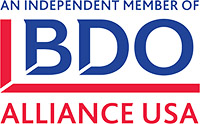
Businesses of all sizes are experiencing increasing scrutiny by taxing authorities, at the federal, state and local levels. Fees and penalties are increasing at alarming rates, making the stakes higher and more costly than ever for issues of noncompliance. The end of the year is a good time to take stock of your business practices with respect to not only performance but accounting practices as well. Please note the following:
SUBSTANTIATION OF BUSINESS INCOME:
In general, all business receipts except contributions to capital and loan proceeds are taxable.
• Best practices dictate that accounting records segregate general business receipts from nonrecurring receipts.
SUBSTANTIATION OF BUSINESS EXPENSES:
An expense is deductible if (1) it is related to a trade or business, (2) it is ordinary and necessary, and (3) it is paid or incurred in carrying on a trade or business. Keep the following rules in mind as part of your accounting practices:
• Keep business and personal expenses separate. Pay business expenses from business accounts, and personal expenses from personal accounts.
• Maintain a separate credit card, in the name of the business, and use it only for business expenses. Don’t use personal credit cards for business expenses.
• Maintain substantiation for ALL business expenses. Paper or electronic copies of bank statements, cancelled checks, receipts, and invoices must be available to support every deduction on tax returns.
• Require documentation of business/personal use of employer provided vehicles for proper W-2 inclusions and to formalize the relationship of the automobile to the business.
• Follow strict guidelines from a documented Accountable Plan for the reimbursement of employee expenses, including reimbursement for the business use of personal automobiles.
• The new tax law eliminates any deduction for business-related entertainment. However, the deductibility of business-related meals is still similar to the old law. The who, what, when, and where of such deduction must be substantiated.
• Note that the deduction for business gifts is limited to $25 per recipient per year.
• Require vendors to complete Form W-9 prior to paying them the first time and issue 1099’s as required.
• Thoroughly consider all facts when making the determination that a worker is a contractor rather than an employee. This issue is continuing to be a target of taxing officials.




